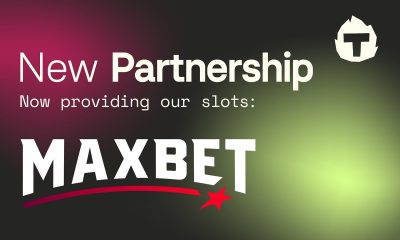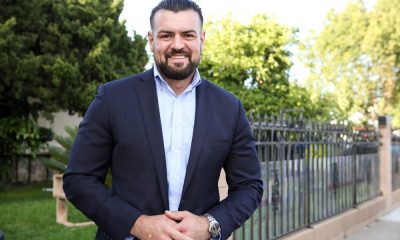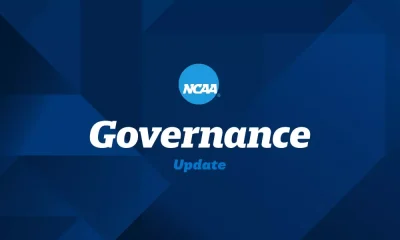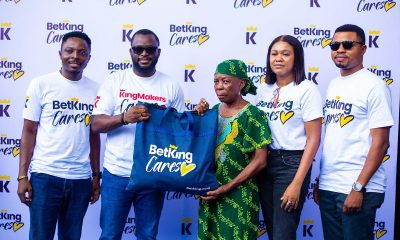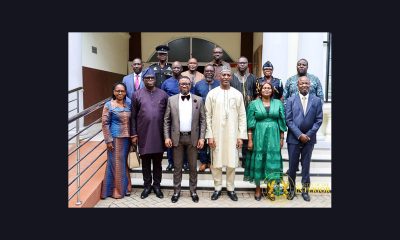Compliance Updates
Secretary Haaland Announces Appointments to National Indian Gaming Commission
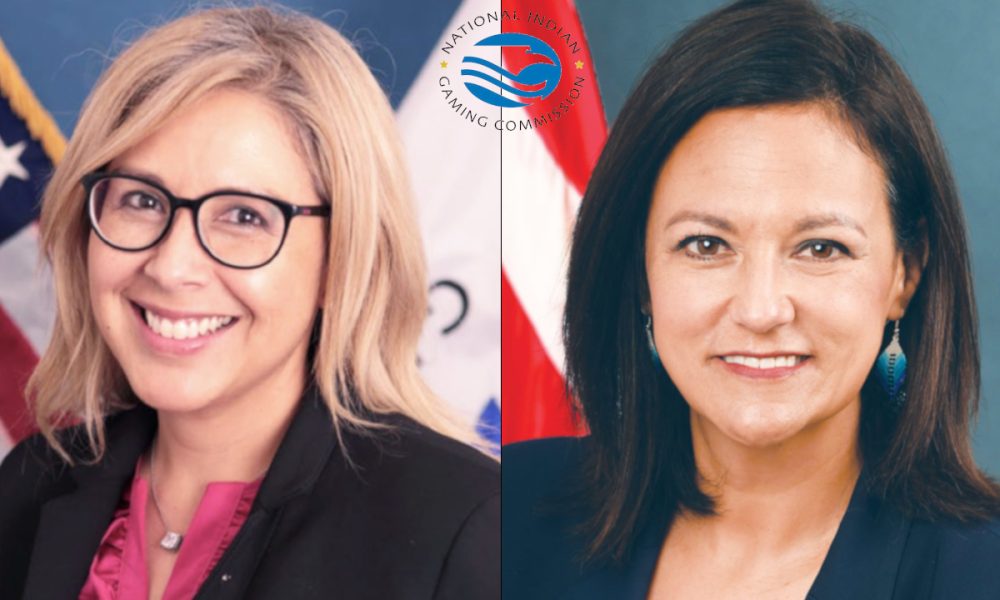
Secretary of the Interior Deb Haaland today announced the proposed appointments of Sharon Avery (pictured, left) and Jeannie Hovland (pictured, right) as Associate Commissioners to the National Indian Gaming Commission.
The Indian Gaming Regulatory Act established the three-person National Indian Gaming Commission in 1988 to support and promote tribal economic development, self-sufficiency and strong tribal governments through the operation of gaming on Indian lands. The National Indian Gaming Commission’s Chair is appointed by the President and its two Associate Commissioners are appointed by the Secretary of the Interior. All National Indian Gaming Commission members serve three-year terms.
“The Biden-Harris administration is committed to ensuring that tribes have the resources they need to exercise their tribal sovereignty and support their communities,” Haaland said. “Not only does gaming support tribal economies, but the funding it generates also helps to support the vital services that tribal nations provide to their citizens; from language preservation to healthcare. Today’s appointments to the National Indian Gaming Commission will help ensure we continue to provide resources and support for an industry that remains one of the most significant sources of economic development in Indian Country.”
Avery is an enrolled member of the Saginaw Chippewa Tribe of Michigan. She currently serves as an Associate General Counsel for the National Indian Gaming Commission’s Office of General Counsel. In this role she has gained familiarity with the agency’s structure and the important role the agency plays within the tribal gaming industry. Prior to joining the National Indian Gaming Commission, Avery worked in the legal department of the Saginaw Chippewa Indian Tribe of Michigan for ten years. She graduated from Michigan State University College of Law with a Juris Doctor degree and a certificate from the Indigenous Law and Policy Center.
Hovland is an enrolled member of the Flandreau Santee Sioux Tribe of South Dakota and currently serves as Vice Chair of the National Indian Gaming Commission. Since joining the National Indian Gaming Commission, she has worked collaboratively to consult with tribes for the promulgation of regulations and to coordinate the agency’s regulatory responsibilities with tribal regulatory authorities. Prior to joining the National Indian Gaming Commission, Hovland served as Commissioner of the Administration for Native Americans and Deputy Assistant Secretary for Native American Affairs at the Department of Health and Human Services and held roles at the Interior Department as well as in the office of South Dakota Senator John Thune.
Appointments to the National Indian Gaming Commission can be finalized following a required 30-day public comment period. Information on how to comment and full biographies of the appointees can be found in the accompanying Federal Register notice.
Compliance Updates
MGM Yonkers Submits Commercial Casino License Application in New York

MGM Yonkers Inc., a subsidiary of MGM Resorts International, submitted its commercial casino license application to the New York Gaming Commission and the Gaming Facility Location Board, with a $2.3 billion proposal to transform its historic Empire City Casino site into a commercial casino and entertainment destination. The development plans have been thoughtfully curated to achieve the maximum benefits for the State of New York, City of Yonkers and surrounding counties, while also meeting the needs of the local community.
MGM Yonkers’ plans include the full renovation and expansion of Empire City Casino’s existing gaming areas, an expansive high-limit lounge and the addition of a state-of-the-art BetMGM Sportsbook offering retail sports betting. The plan also envisions the addition of a 5000 person maximum capacity entertainment venue and accompanying meeting space which will welcome a variety of A-list and local performances with the design flexibility to accommodate special events, local graduations, and other community needs.
Additionally, three new full-service restaurants and the renovation of existing food and beverage venues will provide high-concept dining options for guests. A parking garage with solar energy arrays and electric vehicle parking spaces are among features that demonstrate MGM Resorts’ strong commitment to sustainability. If MGM Yonkers is awarded a commercial casino license, it anticipates completing all project elements by mid-2029.
“Empire City Casino and Yonkers Raceway have anchored the entertainment and tourism culture in downstate New York for more than a century. Achieving a full casino license will ensure this site will continue to be a cultural and economic force for generations to come,” said Bill Hornbuckle, President and CEO of MGM Resorts International.
The post MGM Yonkers Submits Commercial Casino License Application in New York appeared first on Gaming and Gambling Industry in the Americas.
Compliance Updates
KSA Issues Warnings to Optdeck Over advertising and Autoplay Violations

The Netherlands Gaming Authority (KSA) has issued two warnings to Optdeck for untargeted advertising and offering autoplay. Optdeck offers games of chance in the Netherlands under the brand name Unibet.
Unibet is a sponsor of the cycling team Unibet Tietema Rockets. Part of this sponsorship is a coach with the Unibet logo on it. This coach was not only used in the Netherlands to transport the sports team but also for other purposes. This violates the ban on non-targeted advertising.
The KSA also received a signal about a form of autoplay in a game offered by Unibet. The BonusBuy function, where players can automatically continue playing with purchased bonuses without having to start a new game, is prohibited because it encourages excessive gaming.
Optdeck said it was not aware that the bus was also used for other transport and that monitoring various sponsorship agreements can be complex. The cycling team has been asked to stop using the bus immediately, and the bus and team vehicles will be provided with modified stickers without the Unibet logo. The KSA has indicated that it is always the provider’s responsibility to guarantee that sponsorship agreements comply with the laws and regulations. In addition, the coach in this form will no longer be allowed on the road as of 1 July 2025, because that is also when the ban on sports sponsorship comes into effect.
The BonusBuy violation was also a third-party error. After the game went live, this function was incorrectly activated by the supplier. The function was only available for two hours, and players who suffered losses during those two hours were compensated. In addition, measures have been taken to prevent such errors from being made in the future.
The KSA emphasised that the provider itself is responsible for correctly following laws and regulations, even if there is a collaboration with third parties. Because both violations were stopped immediately as soon as they were noticed, the regulator has left its intervention at a warning for now. If Optdeck makes another mistake in the future, the KSA said it may impose stricter sanctions.
The post KSA Issues Warnings to Optdeck Over advertising and Autoplay Violations appeared first on European Gaming Industry News.
Central Europe
GGL Publishes its 2024 Activity Report
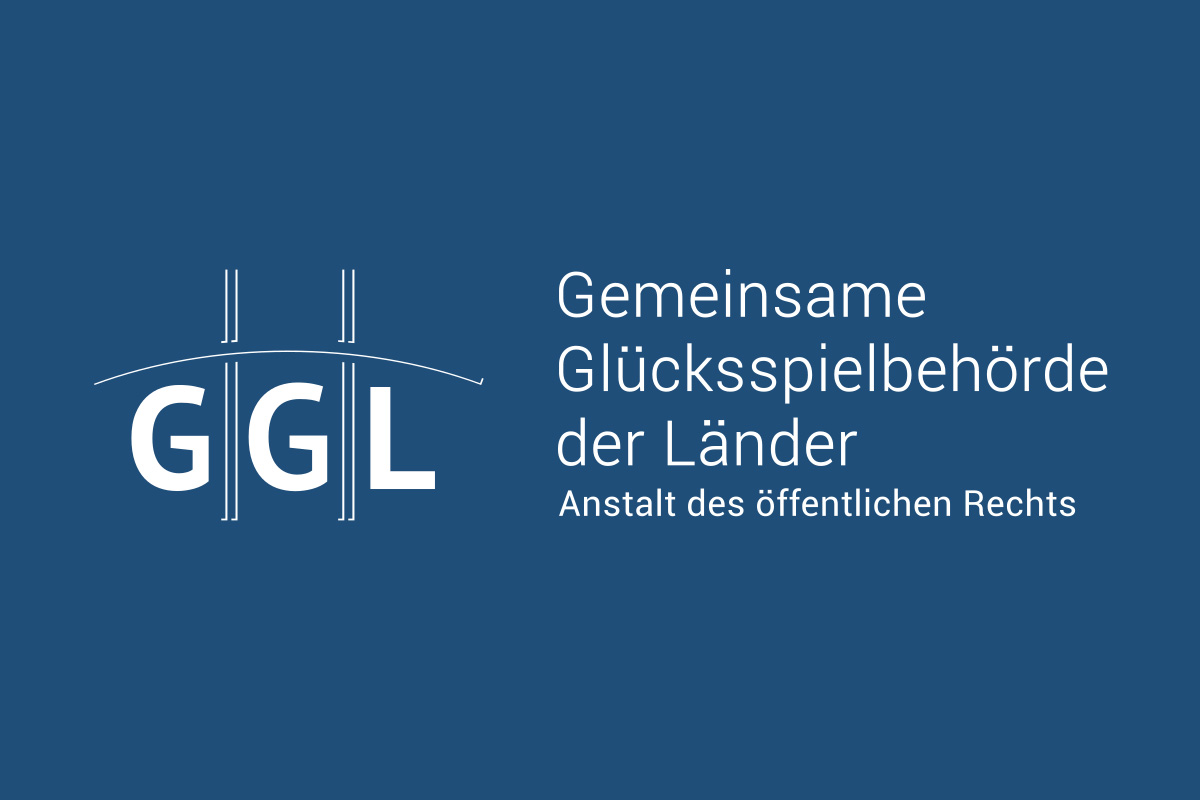
The GGL has published its 2024 Activity Report, which reviews key developments and achievements of the past year. The report explains the approach to combating illegal gambling as well as the activities related to the supervision of legal gambling providers. A key component of the report is also an analysis of market developments in the German gambling market.
Last year, the GGL processed 230 permit and amendment applications and supervised 141 providers. The authority faced a variety of regulatory, legal and supervisory challenges. Major events such as the UEFA European Football Championship and the Olympic Games, in particular, resulted in increased advertising and betting activities, necessitating increased monitoring.
A milestone in 2024 was the court approval of the “Markers of Harm” developed by the GGL. These indicators were developed for monitoring increased deposit limits and were first used in 2024. They serve as an early detection of problematic gambling behaviour. The Mainz Administrative Court confirmed their legal admissibility. The GGL sees this as an important step towards uniform player protection standards.
In 2024, the GGL successfully took action against illegal offerings and was able to make the offerings of numerous illegal providers inaccessible to players in Germany. A total of 231 prohibition proceedings were initiated and over 1700 websites were reviewed. Approximately 450 illegal gambling sites were no longer accessible from Germany due to prohibition orders, and another 657 were no longer accessible due to geo-blocking based on the Digital Services Act (DSA). Payment blocking made deposits and withdrawals for illegal offerings more difficult.
Another success was the adjustment of Google’s advertising guidelines at the initiative of the GGL. Since September 2024, only authorized providers in Germany have been allowed to advertise via Google Ads. This significantly reduced the visibility of illegal offers.
“Our measures are having an impact. Nevertheless, combating illegal offerings remains challenging and requires perseverance and close cooperation with national and international partners,” said Ronald Benter, CEO of GGL.
According to GGL estimates, illegal online gambling accounts for approximately 25% of the total online gambling market.
The legal German gambling market (online and land-based) generated gross gaming revenue (equivalent to players’ losses) of approximately €14.4 billion in 2024—an increase of approximately 5% over the previous year. Tax and levy revenues from gambling amounted to approximately €7 billion.
The providers regulated by the GGL generated approximately four billion euros, which corresponds to a 28% share of the total permitted market.
In the illegal market, the GGL registered 858 German-language gambling websites operated by 212 operators without a license. The GGL estimates that the illegal German-language websites it recorded represent a market volume of between €500 and €600 million. This corresponds to approximately 3% to 4% of the entire legal market (terrestrial and online) and approximately 25% of the legal market for dangerous online gambling, such as virtual slot machines or sports betting.
In 2025, the GGL expects further groundbreaking court rulings on its measures, thus providing even greater legal certainty in its approach. The authority will continue to support the evaluation of the 2021 State Treaty on Gambling and, among other things, further expand advertising monitoring. The further development of the use of safe servers is intended to further improve oversight of the legal gambling market and enable more precise monitoring. A particular focus is on intensive cooperation with national and international authorities to further effectively curb the illegal gambling market. This will target not only the providers themselves, but also technical service providers, advertising partners, and other supporting actors.
Ronald Benter said: “Our stated goal is to make the business model of illegal providers unattractive through a comprehensive package of measures. Combating illegal offerings remains a long-term process that requires strategic action, decisive action, and close interagency cooperation.”
The post GGL Publishes its 2024 Activity Report appeared first on European Gaming Industry News.
-

 Central Europe6 days ago
Central Europe6 days agoGerman Federal Government Significantly Increases the Budget for Games Funding
-

 Eastern Europe7 days ago
Eastern Europe7 days agoThunderkick enhances presence in Romania through MaxBet partnership
-

 BETBY7 days ago
BETBY7 days agoBETBY EXPANDS LATAM FOOTPRINT WITH MOBADOO ESPORTS PARTNERSHIP
-

 California State Assemblymember Avelino Valencia6 days ago
California State Assemblymember Avelino Valencia6 days agoNew Bill in California Could End Online Sweepstakes Gaming
-

 Compliance Updates6 days ago
Compliance Updates6 days agoNew Initiative from DI Council Aims to Enable Betting on Professional Sports
-

 Africa7 days ago
Africa7 days agoBetKing Delivers Healthcare Services and Nutrition Support to Underserved Nigerian Communities
-

 Conference6 days ago
Conference6 days agoAmatic Industries Showcased its Latest Innovations at Peru Gaming Show 2025
-

 Africa6 days ago
Africa6 days agoNew Governing Board of the Gaming Commission of Ghana Sworn in



















